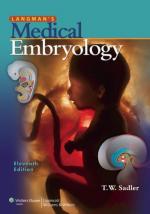|
This section contains 870 words (approx. 3 pages at 300 words per page) |

|
Embryology is the study of the early development of organisms. With regard to genetics, molecular biologists have long sought to discover the mechanisms by which a fertilized egg, the recipient of genetic information from its parents, is able to give rise to the various types of cells that comprise an adult organism. The mechanisms of transcription and translation, the essential processes of protein synthesis, are much more completely understood than are the mechanisms of cell differentiation that regulate the synthesis of specific proteins in specific tissues at certain times during embryonic development.
Beyond the continued study of birth defects, clinical embryologists also study the interplay between genetic and environmental factors in such increasingly critical fields as cryoembryonics (processes by which frozen embryos are stored for later implantation and development), in vitro fertilization, and a number of other fertility related areas. Embryologists are also concerned with the similarity between...
|
This section contains 870 words (approx. 3 pages at 300 words per page) |

|


